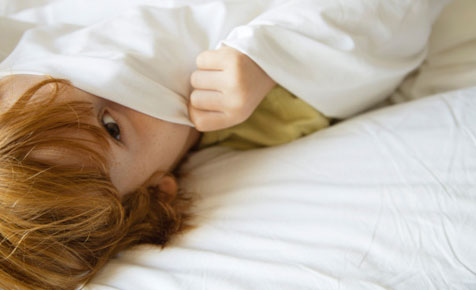Soggy sheets, wet pajamas, an embarrassed child, and concerned parents. Is this a familiar scene? Don’t worry though because bed wetting, also known as nighttime incontinence or nocturnal enuresis, is actually just a normal part of your child’s development. Here now are simple ways of recognizing and managing your child’s bed wetting.

They say that bed wetting can be a symptom of an underlying disease and this may be true in a small percentage of all of those who bed wet. However, the bigger majority actually have no underlying disease. A bed wetting child should also not be mistaken as lazy, disobedient, or doing it on purpose. As mentioned earlier, most of the time it’s really nothing but a developmental issue.
Bed wetting before seven years of age isn’t much of a concern too. In fact, this is the stage in your child’s life that a lot of developmental milestones occur, one of them being bladder control. If bed-wetting continues after seven years old, simply approach the problem with patience and understanding.
Bladder training is the most often used and most effective plan of action but moisture alarms or medication may also help reduce bed wetting. Most children gain bladder control over time without any treatment though. If you want to train your child, allow them to overcome bed wetting on their own first.
Other methods we recommend, which can be used in combination, include scheduled fluid restriction and caffeine regulation. The former can be done by monitoring your child’s consumption of liquids throughout the day. It is recommended that children drink three to four glasses of water in the morning, another three to four in the afternoon, then reduce to one or two glasses in the evening.
Caffeine intake regulation is also very effective. Why so? Caffeine is a diuretic substance. It promotes the excretion of urine in high levels in the body. Some types of chocolates, sodas, and tea may contain a lot of caffeine. Avoid these types of food, especially in the late afternoon or evening.
As mentioned earlier, bed wetting should be approached with patience and understanding. Don’t punish and embarrass your child. Work as a team and give them the support they need at the time they need it most. Come to think of it, you yourself probably also experienced bed wetting as a child but you just don’t remember it.

Leave a Reply